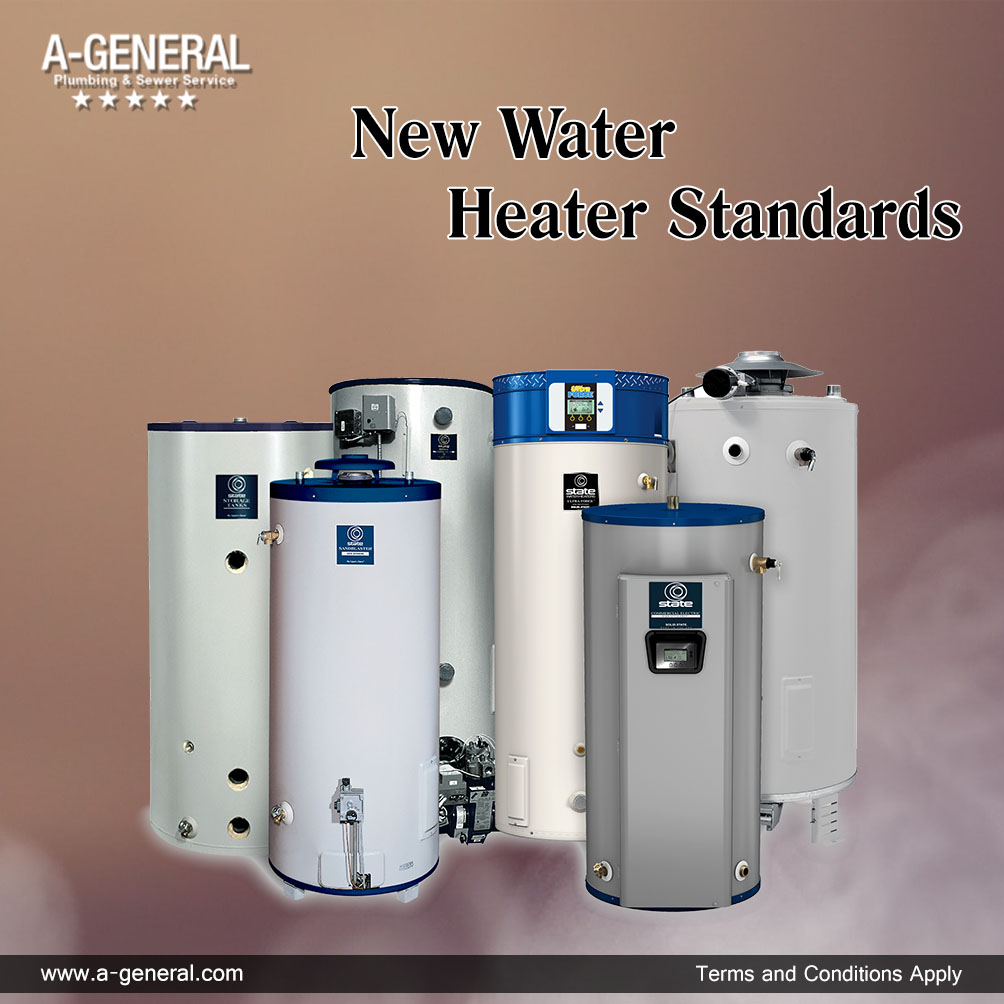Every American household will have to make certain changes in the way they use their plumbing fixture and most importantly the water heater. From April 16, 2015, your water heater requirements as enacted in the National Appliance Energy Conservation Act (NAECA) will take effect, the ordinance was passed in 2010. This move will help raising the standard energy rating of water heaters nationwide.
According to the new requirements all gas-fired, oil-fired, and electric water heaters will be imposed to meet these new ratings as directed by energy factor (EF), and measured in terms of cycling losses, recovery losses, and standby losses.
Below are some guidelines for Homeowners using water heaters under 55 gallons in size.
- As per the new NAECA regulations, water heaters below 55 gallons can now be 2 inches taller, or 2 inches wider as an existing unit, as they share the same gallon capacity.
- For water heaters below 55 gallons, a minimum space of three inches must separate the unit from walls and other fixtures.
- However, the NAECA changes that comes into effect from April 16, 2015 have a zero to no effect on homeowners with heaters below 55 gallons. The new standards will hit the most to people with water heaters larger than 55 gallons. This move has been especially initiated in an attempt to lower national energy consumption and spending.
- For users of Electric water heaters above 55 gallons in size, they must be hybrid electric heat pumps.
- For users of Gas water heaters above 55 gallons, must have condensing water heater design to meet the new 2015 water heater standards. Important parts such as flue baffling equipment and electronic ignition also must be updated.
How will the New Standards Affect You
In applying these new requirements, you may be questioning yourself, as to ho these changes in water heater usage will affect the average property owner.
To let you know, the new requirements are designed to save as much as 3.3 quads of energy by the year 2044 that is equal to eight billion gallons of gasoline. This low consumption means homeowners now will see a noticeable drop in monthly energy bills.
For homeowners who have water heater units installed in their garage or basement, this change will likely have little to no effect, as upgrading water heaters will be simple. But, if your home water heater is situated in a tight closet or storage room, you may want to have an expert advice before doing the job. Professional plumbers who oversee general plumbing repairs can come handy in such situations, as they are far more equipped than you and are also trained plumbing professionals to to get that water heater fixed.

